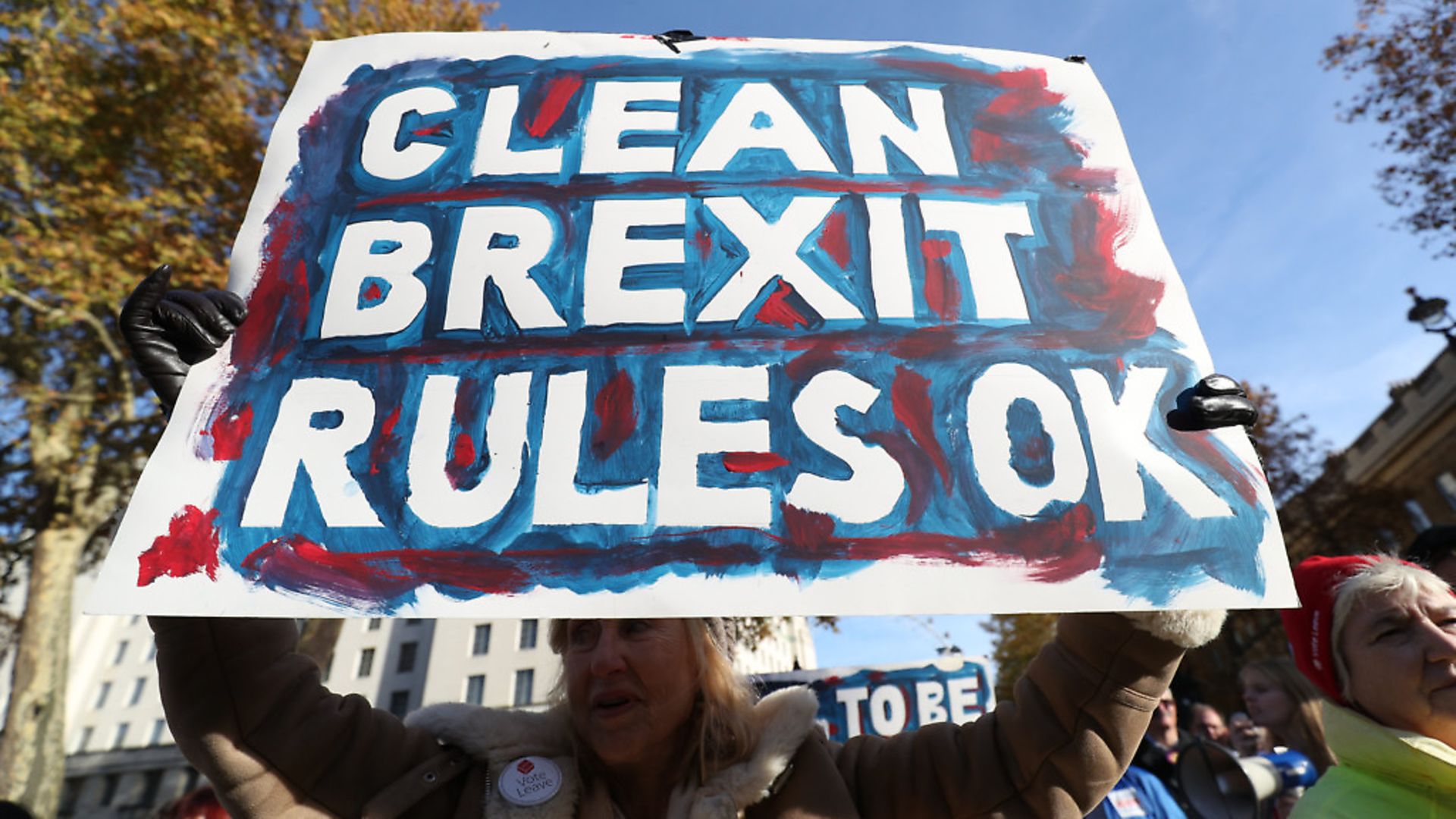
What evidence will it take those advocating a no-deal Brexit to change their mind? JOHNNY LUCAS says to understand their mindset we should watch Netflix’s Behind the Curve.
Here’s a phrase you don’t hear often these days: I don’t believe my side has a monopoly on truth. I ask myself daily whether campaigning for a People’s Vote is the right thing to do, testing whether our arguments really hold water. An important part of this process is asking yourself what piece of evidence would change your mind. If you can’t think of any, this doesn’t make your position stronger; quite the opposite – when your belief is unfalsifiable, it becomes dogma.
I was reminded of the importance of this question a few weeks ago, while watching the Netflix Flat Earth documentary Behind the Curve. It does an admirable job of portraying a group of people who are defined by isolation – partly by choice, and partly by ostracism. Rather than inviting us to laugh at them, the documentary explains the – and I mean this entirely sincerely – intellectual journey Flat Earthers take as they adopt a mindset that rejects conventional scientific knowledge in favour of YouTube videos questioning everything from the moon landings to the theory of gravity.
Making a comparison between World Trade Organisation (WTO) Brexit believers and flat earth conspiracists is not likely to win my campaign allies, although it has been made before. I’m not suggesting that the two beliefs are directly equivalent, but they both begin from similar positions, and both end in denial.
Isolation is a crucial factor – it marks the start of divergence from lessons that are socially taught and learned. When the country that you believe you inhabit (wealthy, self-sufficient, steeped in tradition) doesn’t match the reality before your eyes (impoverished, reliant on trade, changing rapidly), it becomes easier to question other aspects of national identity, such as EU membership – particularly if these elements are presented as responsible for your initial experience of disconnect by unscrupulous leaders.
Once this hermetically sealed worldview has taken root, it becomes difficult to exchange views with those who don’t share your opinions. This is because the established facts we take for granted (the coriolis effect or the earth’s magnetic North in the case of flat earthers; the benefits of the single market or EU subsidies in the case of Brexit) are incompatible with their view, and as such become mere inflection points for more skepticism.
Rebecca Solnit wrote about the relationship between isolationism and truth in Harper’s magazine: “If you begin by denying social… systems, then you end in denying the reality of facts… You deny the relationship between cause and effect, evidence and conclusion… You deregulate meaning.” Hardline Brexiters have eschewed the reality plainly visible to the rest of society: that a No-Deal Brexit would be catastrophic in every single way.
Towards the end of the documentary, the flat earthers devise an experiment to settle the matter of curvature. When their results indicate that the earth is indeed curved, they decide that the experiment was flawed, not that their assumptions were. While working at Our Future, Our Choice I encounter advocates for a WTO Brexit fairly regularly, and I often ask them what piece of evidence would persuade them to change their mind. The response is mixed – some scoff, some sneer, some just shout “Brexit means Brexit” – but not one has given me a straightforward example.
For flat earthers, there is a conspiracy involving the upper echelons of worldwide governments. For hard Brexiters, it is the poorly defined but easily invoked “liberal elite” who benefit from the EU, happily trading “sovereignty” in exchange for back-room deals in Brussels, aided and abetted by the biased media. The pollsters, of course, are in league with them too, seeking to suppress public opinion (or the “will of the people”) through distorted representation.
Of course, these beliefs are not uniformly adopted: Brexit is a broad church, and heresy is rife – Theresa May is just as much of a traitor as those advocating to revoke Article 50. Similarly, flat earthers have wildly different visions of what the “true” earth actually looks like, with heated debate culminating in accusations of being CIA plants – trust is difficult to establish within a group whose primary characteristics are suspicion and scepticism.
After my interactions with WTO supporters, I can’t help feeling that I have somehow failed them. Failed, because our interaction may have made them dig deeper into their ideological rabbit hole. Failed, because I am no closer to understanding their processes or arguments. Failed, because I didn’t make the society that forgot about them seem appealing enough to tempt them back.
With the Brexit Party climbing in the polls (mostly at the expense of the Conservative party, which, in a stroke of irony, was responsible for the immortal phrase “no deal is better than a bad deal”), it is becoming increasingly clear that Brexit on WTO terms is a serious threat. More and more voters are flocking to Nigel Farage’s snake-oil salesman act, and their unquestioning belief in his rhetoric is evidence that a significant proportion of our population needs to be reintegrated.
This will not be achieved by gloating or belittling them. It may not even be possible by questioning them on their beliefs: they have to ask themselves these questions, in fact, we all do. If you have made it through this piece without asking yourself, now is a good as time as any. What piece of evidence would change your mind?









